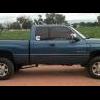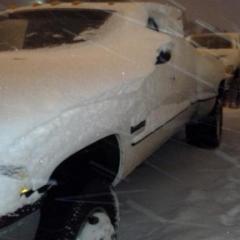Lost another alternator...
- Replies 32
- Views 8.6k
- Created
- Last Reply
Top Posters In This Topic
-
Mopar1973Man 9 posts
-
TFaoro 5 posts
-
Hawkez 4 posts
-
JAG1 3 posts
Most Popular Posts
-
Updated video... Other videos are deleted now as well so this is the only video in my library for AC noise testing now!
-
When I get some more free time I'll do just a "Alternator AC Noise" article.
-
Unknown why but it failed the NAPA test stand. The new one pasted. So I can say that bad alternator diodes can do some really weird things like bucking and jerking with fly by wire cruise control.





On my way home from town I set the cruise and the truck started bucking and jerking on cruise control. Cancel cruise control throttles fine, Set cruise again bucking and jerking. So I pull over unplug the field lead and drive home. No issues at all. Pull out my Fluke DVM and measure at the BATT terminal of the alternator and was getting 0.244 not a typo... So of to the part store again to get another alternator under warranty.
Edited by Mopar1973Man